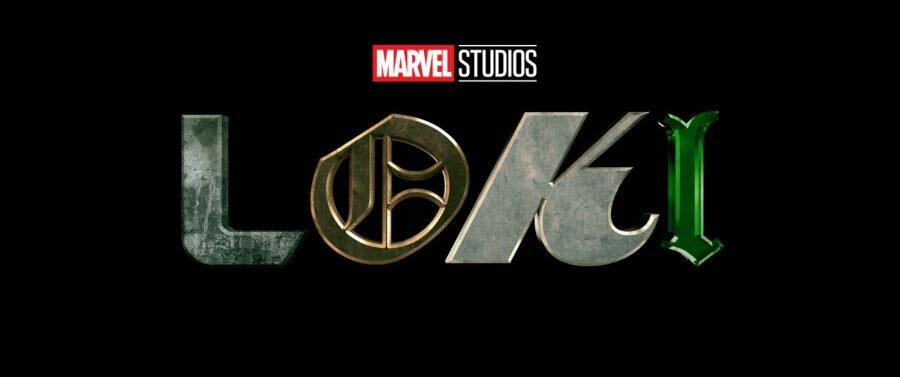Loki makes mischievous entrance into MCU’s Phase Four
The Marvel Cinematic Universe (MCU) seems to be holding nothing back with Phase Four of the popular franchise. Marvel fans have been treated with four distinct entries so far—and the year is only half over. “WandaVision,” “The Falcon and the Winter Soldier,” and “Black Widow” have all been praised for providing emotional stories for some of the franchise’s underdeveloped characters. “Loki” distinguishes itself with its much more grandiose story.
“Loki” is the MCU’s third outing on Disney+, and it has proven to be the most successful one yet. Serving as both a character study of the titular god of mischief as well as a launching point for the main overarching plot of Phase Four, the series sports one of the more interesting stories in the MCU.
In the series, an alternative timeline version of Loki (Tom Hiddleston) escapes his defeat at the hands of the Avengers in 2012 (an event shown in “Avengers: Endgame”). However, he is arrested by the Time Variance Authority (TVA), an organization dedicated to maintaining a single timeline to avoid multiversal war. There, an agent known as Mobius (Owen Wilson) recruits Loki to help him hunt down another Loki variant known as Sylvie (Sophia Di Martino).
It is worth mentioning that Loki met his demise in “Avengers: Infinity War” as a decently well developed antihero. The idea that Loki (albeit a different version) has been brought back into the series via timeline branching seems a bit like a cop-out in concept, but the series proves that Loki’s return is indeed significant. The inherent weirdness of timeline hopping and alternate realities is very fitting for the character, and this version of Loki is not exactly a repeat of the mainline Loki, for better or worse.
In many ways, the show is an emotionally brutal study of the fan favorite character as it tears down and examines his narcissism, loneliness, insecurities, and great capacity to love despite it all. Themes of self-acceptance, personal betterment, and the nature of free will permeate the season from beginning to end. The issue is that the show does not seem to know how exactly to develop Loki himself.
The first three episodes of “Loki” establish a steady yet exciting pace for Loki’s character arc that feels like a fitting place for this particular version of Loki to be in. In the series, Loki learns of his ultimate fate and struggles to find a new purpose in his lonely life. However, starting with episode four, Loki’s personality seems to completely switch gears to an almost one-note hero—a far departure from the antihero fans are familiar with. There is no gradual evolution for Loki past episode three.
Much of this is magnified by the unnecessary amount of weight put on the connection between Loki and Sylvie, who are alternate reflections of each other. This relationship is a classic enemies to allies situation that is meant to emphasize betterment of the self via the bond of another person. Such a theme is indeed significant for the typically lone-wolf Loki, but the entire dynamic is so rushed that it ultimately rings very hollow. It also causes Sylvie herself to somewhat lack a character arc due to her being present as a catalyst for Loki’s, which fails itself as Loki’s entire development becomes eclipsed by this particular relationship.
This messy arc unfortunately leads to a more passive protagonist role for Loki, which is disappointing especially to long-time fans of the cunning sorcerer. This also sees Loki’s magic and strength considerably toned down. The decision was undoubtedly made for convenience in the plot setup surrounding Loki’s character arc so that his reactions to various story events can, in theory, push his evolution. However, this becomes especially grueling when, by the fifth episode, it seems Loki has almost no stake in the plot.
Despite the troubled execution of Loki’s characterization, the strong central plot of discovering the TVA’s true motives shines as new twists are introduced each episode. The show’s story is very interesting with well-explained lore and conflict, and it is surprisingly well-paced itself despite both the hurried nature of Loki’s personal journey and an odd subplot-focused third episode.
The TVA remains a mystery throughout nearly the entirety of the first season as a morally gray force that must simultaneously be taken down and preserved for the greater good. Especially upon viewing the finale, audiences are given a moral dilemma without a correct answer. In addition, “Loki” is monumental for both its own contained story as well as the overarching MCU. By sheer concept alone, fans are bound to be excited over the show’s plot. All of its new characters are likable and sympathetic (especially Mobius) with a nice air of humor to them. In almost every way, “Loki” feels like classic MCU.
The superb performances of the cast elevate the show. Hiddleston, ever devoted to his long-held role, excellently plays Loki to the emotional level demanded by the script. He is joined by Wilson and Di Martino, who portray their characters with equal enthusiasm. Wilson in particular seems to have found a renewed vigor in his career after nearly four years without a major acting role.
“Loki” also excels in terms of atmosphere. Its haunting score composed by Natalie Holt is arguably the best soundtrack of any MCU project. The music coupled with dim low-key lighting, numerous low-angle shots, and expansive landscape visuals concocted by director Kate Herron and cinematographer Autumn Durald Arkapaw gives off a fantastic vibe of subdued yet unsettling power.
So, how does “Loki” compare to the other two Marvel Studios series on Disney+? It is a solid middle between them. The show is an improvement over “The Falcon and the Winter Soldier” simply because “Loki” does not suffer from a fundamentally weak central conflict and more or less keeps itself together throughout the entire season. “WandaVision” is still the superior series of the three, with much tighter writing all around than “Loki.” However, “Loki” is definitely the most consequential and the only series to be receiving a second season.
Overall, “Loki” is yet another sound entry into the already great Phase Four. The show proves that the MCU is not ready to leave the beloved trickster behind just yet, which is an exciting prospect for many fans. The series offers much intrigue and emotional moments, though it also sparks frustration with its disappointing exploration of the historically complex protagonist. Regardless, the first season provides an entertaining experience for Marvel fans despite its shortcomings. The second season will undoubtedly be much anticipated.
All episodes of the first season of “Loki” are now streaming on Disney+.
Hey! I’m from Bryant, Arkansas. I’m a Digital Media...











